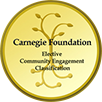Barry University
Transformative Degree Programs

We combine a liberal arts focus with the Catholic intellectual tradition of integrating study, reflection, and action, delivering a transformative, values-based educational experience to adult learners online.
Experience A TRANSFORMATIVE EDUCATION Online
Attain vital professional knowledge and skills that open doors to career opportunities and make a real impact in an ever-changing world with our accelerated online degree programs.

MBA Programs
Our dynamic AACSB-accredited business programs integrate real-world experience with strategic curricula that emphasize sustainability and practical applications on both a global and a local scale.
Learn More

PUBLIC/SOCIAL SERVICES PROGRAMS
We offer master’s degree programs online that prepare leaders in public service to generate solutions to social, economic, and environmental problems.
Learn More
Why Choose Barry University?
Our Alumni We’ve educated over 60,000 graduates worldwide
AACSB International The Andreas School of Business at Barry University is an accredited member of AACSB International

MILITARY FRIENDLY® SCHOOL Cited among the top schools in the nation for embracing members of the military (VIQTORY Media, 2022-2023)
DISTINGUISHED FACULTY Over 90 percent of full-time faculty hold a doctoral degree or the highest degree in their field
Why Choose Barry University?
Our Alumni We’ve educated over 60,000 graduates worldwide
AACSB International The Andreas School of Business at Barry University is an accredited member of AACSB International
MILITARY FRIENDLY® SCHOOL Cited among the top schools in the nation for embracing members of the military (VIQTORY Media, 2022-2023)
DISTINGUISHED FACULTY Over 90 percent of full-time faculty hold a doctoral degree or the highest degree in their field
DISTINGUISHED FACULTY Over 90 percent of full-time faculty hold a doctoral degree or the highest degree in their field
Reasons to love BARRY
Applied Learning in a Living Classroom where critical thinking is fostered and applied in a constantly changing world
An Inclusive Community where differences are celebrated, respected, and enriching to the learning experience
A Dynamic Learning Environment where the professors guide, encourage, and challenge their students
Exemplary Faculty and Staff who honor the Barry heritage, lead by example, and inspire the next generation of change agents and leaders
University Experience where reflection leads to civic engagement and action for the betterment of humanity

WHAT OTHERS SAY ABOUT BARRY

Recipient of the Community Engagement Classification from the Carnegie Foundation for the Advancement of Teaching. This designation is an evidence-based recognition of an institution's commitment to community service.

Barry graduates are in the top 10 percent of salary earners among the state's 28 private, not-for-profit educational institutions, according to the Florida Department of Education.
WHAT OTHERS SAY ABOUT BARRY

The Carnegie Foundation for the Advancement of Teaching awarded Barry the Community Engagement Classification (2015).

Barry graduates are in the top 10 percent of salary earners among the state's 28 private, not-for-profit educational institutions, according to the Florida Department of Education.
Request more information
Submit this form, and an Enrollment Specialist will contact you to answer your questions.
Or call 844-890-5951
By submitting this form, I am providing my digital signature agreeing that Barry University and its agent, Academic Partnerships, may email me or contact me regarding educational services by telephone and/or text message utilizing automated technology or a pre-recorded message at the telephone number(s) provided above. I understand this consent is not a condition to attend Barry or to purchase any other goods or services.
